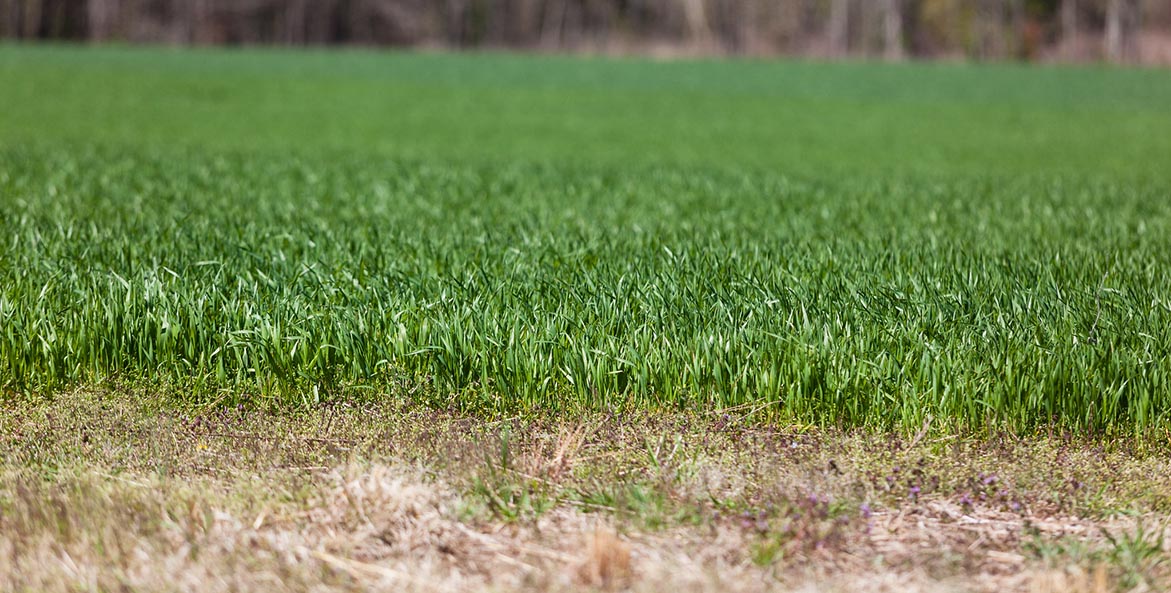This article first appeared in Maryland Matters on May 30, 2023.
For the first time, Maryland is giving small-scale farmers a similar financial boost for cover crops that larger-scale farmers have enjoyed for years. Starting this year, Maryland Department of Agriculture’s Small Acreage Cover Crop Program allows farmers who plant less than five acres of cover crops to receive a reimbursement of up to $1,500 per year for the purchase of cover crop seed.
At the Chesapeake Bay Foundation (CBF), we applaud Department of Agriculture for establishing the new program and see it as a model for other states in the Bay watershed. Cover crops are typically cereal grains planted between growing seasons that help improve Bay water quality by trapping pollutants such as nitrogen, improving soil health, and preventing erosion.
Previously, cover crop benefits were only available to farmers who plant five acres or more of cover crops. The state’s expansion of this benefit highlights an effort to increase equity between small and large farms.
Small farmers can grow a lot of vegetables on a couple acres of land and the majority of these farmers market directly to local consumers. These smaller farms typically provide local vegetables to communities while implementing Bay-friendly farming practices, including the use of cover crops, no tillage, and organic fertilizers, which assists with Chesapeake Bay cleanup efforts.
The widespread adoption of regenerative practices among small-scale and urban farms shows how this sector can help to promote environmentally responsible agriculture.
The new program will also help to address the historical imbalance between small and large farms. Government farm programs are often biased in favor of larger operations, leaving small-scale and urban farms excluded due to eligibility requirements, such as farm size. As a result, more money has gone to supporting large-scale corn and soybean production, which is used mostly as livestock feed, with a small fraction of benefits left to support the smaller vegetable farmers.
Supporting smaller farms is also an investment in the health of our communities. These farms produce fresh, healthy food near where people live, and reach consumers who may struggle to access fresh food. By increasing local food production, smaller farms can reduce greenhouse gas emissions generated by transporting food. According to a study conducted by the Johns Hopkins Center For A Livable Future, close to 90 percent of the vegetables eaten in Maryland come from out of state. By supporting local growers, we can reduce this percentage and the carbon footprint of Maryland’s food system.
The Chesapeake Bay Foundation encourages farmers who operate small farms to apply for this funding program to improve soil health, farm productivity, and increase their economic bottom line. Small farms help build strong communities, and we commend Department of Agriculture for their support of this critical program.




